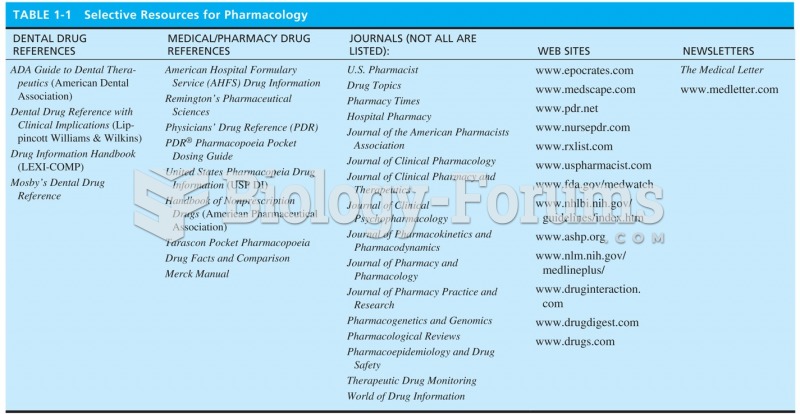|
|
|
Astigmatism is the most common vision problem. It may accompany nearsightedness or farsightedness. It is usually caused by an irregularly shaped cornea, but sometimes it is the result of an irregularly shaped lens. Either type can be corrected by eyeglasses, contact lenses, or refractive surgery.
The familiar sounds of your heart are made by the heart's valves as they open and close.
Not getting enough sleep can greatly weaken the immune system. Lack of sleep makes you more likely to catch a cold, or more difficult to fight off an infection.
Only 12 hours after an egg cell is fertilized by a sperm cell, the egg cell starts to divide. As it continues to divide, it moves along the fallopian tube toward the uterus at about 1 inch per day.
As many as 28% of hospitalized patients requiring mechanical ventilators to help them breathe (for more than 48 hours) will develop ventilator-associated pneumonia. Current therapy involves intravenous antibiotics, but new antibiotics that can be inhaled (and more directly treat the infection) are being developed.
 Chimpanzees live in complex kin groups in which lifelong bonds and individual personalities play key
Chimpanzees live in complex kin groups in which lifelong bonds and individual personalities play key
 (a) Initial mtDNA results suggested modern humans and Neadertals were equally distantly related to D
(a) Initial mtDNA results suggested modern humans and Neadertals were equally distantly related to D
 Durkheim believed that modern societies produce feelings of isolation, much of which come from the ...
Durkheim believed that modern societies produce feelings of isolation, much of which come from the ...




